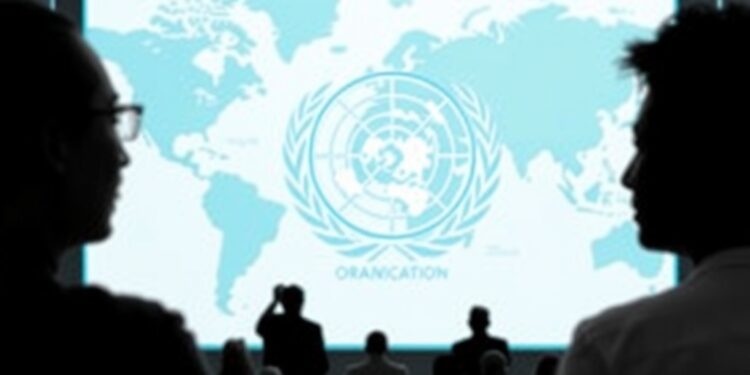The Society for Healthcare Epidemiology of America (SHEA) has issued an urgent appeal stressing the critical importance of global collaborations in combating health threats that challenge societies both domestically and internationally. In the face of a pivotal moment for public health, SHEA urges a reconsideration of the decision to sever ties with the World Health Organization (WHO). This call to action emphasizes that effective management of emerging health threats inherently relies upon unified efforts with global partners, particularly in light of the interconnected nature of today’s health landscape.
Emerging zoonotic infections and public health threats are increasingly common, necessitating a robust and cooperative international framework. Terminating U.S. involvement with the WHO poses significant risks, leaving the nation—and the global community—more susceptible to infectious diseases. The repercussions could lead to inadequate preparedness when confronted with pandemics, insufficient responses to chronic diseases, and weakened infection control measures at a time when they are desperately needed. Therefore, a steadfast commitment to multilateral cooperation is essential for safeguarding both individual and public health.
SHEA is not merely a proponent of global cooperation; the organization is actively engaged in building international alliances that strengthen health systems. By working hand-in-hand with various organizations and experts across multiple countries, SHEA promotes research, disseminates evidence-based practices, and encourages innovations within the realm of infection prevention. Such collaborations are instrumental in the fight against chronic diseases and emerging pathogens, ultimately benefitting a broad spectrum of patients and healthcare workers, not just those within the borders of the United States.
The imperative for global partnerships is reinforced by the increasing interconnectedness of health issues. Global travel, shifting climate patterns, and evolving demographic trends contribute to the rapid spread of diseases across borders. The international nature of outbreaks necessitates a united and proactive response. The WHO serves as the coordinating body for this effort, providing invaluable tools and guidance for public health initiatives aimed at outbreak prevention and containment. Hence, the prospect of withdrawing from this critical institution is deeply concerning for both the U.S. and the international community.
Furthermore, SHEA’s engagement with the Global Infection Prevention and Control Network (GIPCN) underscores its dedication to aligning worldwide initiatives on infection prevention. This alignment is crucial for combating endemic and communicable diseases that impose a burden on healthcare infrastructures globally. Maintaining a collaborative stance fosters an environment wherein resources, knowledge, and innovation can be shared across borders, ultimately enhancing public health outcomes for all citizens, including Americans.
In parallel, SHEA advocates for the continual support of the WHO’s mission, emphasizing that responsible international engagement and funding discussions are vital. Rather than withdrawing fully, the U.S. should consider engaging in bilateral dialogues to address concerns and foster improvements in organizational workings. This measured approach to international collaboration is likely to yield more significant benefits for public health and foster a system capable of responding comprehensively to emerging threats.
The gravity of withdrawing from global health institutions cannot be overstated. Should the announced withdrawal from the WHO take effect, it is imperative for the U.S. administration to reassess this decision for the sake of public health security. A retreat from such critical partnerships could erode the health infrastructure in place to protect American citizens and impede global health initiatives aimed at safeguarding vulnerable populations.
In conclusion, SHEA reaffirms its commitment to advocating for science-driven, collaborative strategies to protect and enhance public health both in the U.S. and across the globe. By fostering international alliances and remaining engaged with the WHO and its initiatives, vital health threats can be addressed more effectively, ensuring that health workers and communities are better equipped to face imminent challenges. As health concerns transcend borders, the need for a cooperative approach has never been more crucial.
As scientific understanding evolves, so too must public health strategies. The call for global collaboration in the face of unprecedented health crises shines a light on the interdependencies among nations. Engaging with international health organizations like the WHO not only strengthens America’s response capabilities but also cultivates a global environment that promotes health equity and resilience. SHEA, through its relentless advocacy, aims to build a future characterized by collaborative triumphs against the persistent challenges that threaten the health of populations worldwide.
Subject of Research: Global Health Partnerships and the Importance of WHO Involvement
Article Title: The Imperative of Global Collaboration in Health: A Call to Reinforce Ties with the WHO
News Publication Date: October 2023
Web References: www.shea-online.org
References: SHEA Official Statements and Publications
Image Credits: N/A
Keywords: Global health, public health, WHO, infectious diseases, antimicrobial resistance, collaboration, epidemiology, infection prevention, healthcare, vaccines, global partnerships.
Tags: Antimicrobial ResistanceEpidemiology AdvocacyGlobal Health Partnershipshealth equityInfection Control StrategiesInfectious Disease PreventionInternational Health AlliancesMultilateral CooperationPandemic PreparednessPublic Health SecurityWHO CollaborationZoonotic Threats





